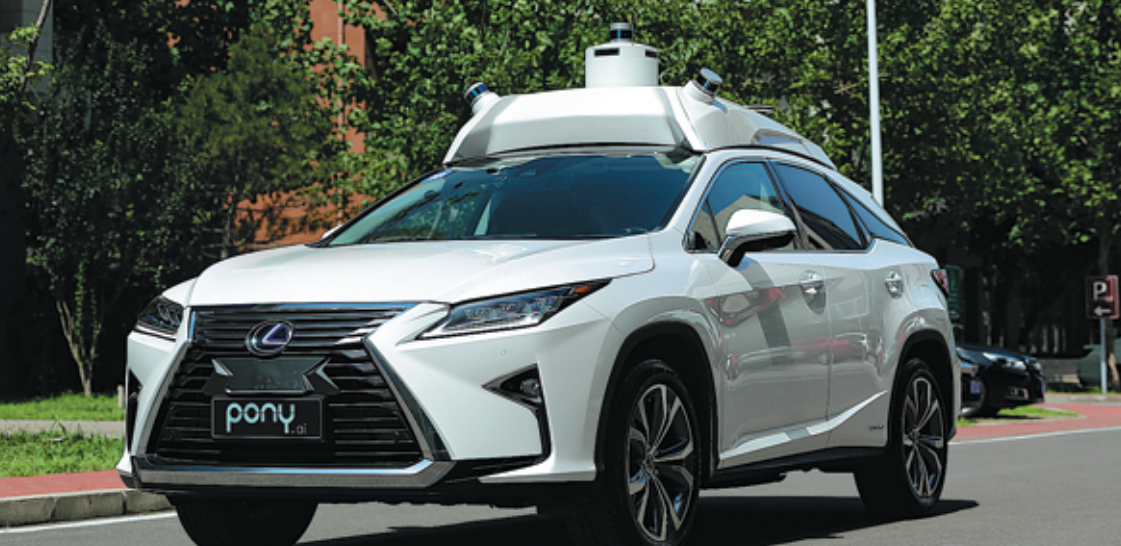Self-driving startup Pony.ai raises $462m in Toyota-led funding


Autonomous driving startup Pony.ai finished a new round of funding last week raising a staggering $462 million, which analysts say is perfectly timed as China steps up efforts to promote the technology.
The fundraising, of which $400 million was from automotive giant Toyota Motor Corporation, has put the Silicon Valley-based startup's valuation at over $3 billion.
Toyota's money also marks its biggest investment in an autonomous driving company with a Chinese background.
Pony.ai was co-founded by CEO James Peng, a former executive at Baidu, and chief technology officer Lou Tiancheng, a former Google and Baidu engineer. The company has offices in Beijing and Guangzhou, capital of South China's Guangdong province.
"It (the investment) will enable us to make the commercialization of autonomous driving vehicles faster," said Peng in an interview with Bloomberg TV. "We will put more money into building up the fleet."
Pony.ai is focusing on Level 4, or "mind-off" autonomous vehicles. They can handle all aspects of driving in most circumstances without human intervention, according to the Society of Automotive Engineers International.
Toyota's investment comes as an extension of a business partnership that it formed with Pony.ai in 2019, when the two initiated autonomous driving projects in China.
This time, in addition to co-developing autonomous driving technology, Pony.ai said it and Toyota will look beyond the vehicle itself to explore further possibilities for mobility services.
"Strengthened ties will enable deeper integration of Pony.ai's autonomous driving system with Toyota's robust vehicle platforms and technologies," said the startup in a statement.
For Pony.ai, a relationship with Toyota is a vote of confidence as it seeks to take on US rivals such as Alphabet Inc's Waymo and Uber.
Since its establishment in 2016, Pony.ai has been a pioneer in autonomous mobility technologies and services across the US and China, spearheading "robotaxi" pilots in both markets.
Pony.ai has been testing its "robotaxi" pilot service since late 2018 in Guangzhou, and started a pilot program in California in late 2019.
Analysts say Pony.ai's investment comes at a perfect time as China revs up its smart vehicle strategy as outlined in a blueprint released last week by the National Development and Reform Commission, the Ministry of Industry and Information Technology and another nine ministries.
According to the blueprint, the country is planning to realize "scale production of vehicles capable of conditional autonomous driving and commercialization of highly autonomous vehicles in certain circumstances by 2025".
It said China is expected to build a complete and sound set of standards for smart vehicles from 2035 to 2050.
Developing smart vehicles has become a global strategy and it is crucial to upgrading China's auto industry, according to the blueprint.
Analysts at Essence Securities said the promulgation of the strategy could herald a golden era for the autonomous driving industry.
So far six cities in China have allowed passenger-carrying tests on autonomous vehicles, including Beijing, Shanghai, Chongqing and Guangzhou, according to Beijing News. Consulting firm McKinsey said China has the potential to become the world's largest market for autonomous vehicles, which will steer the country's automotive industry into the fast lane.
It estimated that the mass adoption of highly autonomous vehicles in China will start around 2027 and they could account for 66 percent of passenger-kilometers traveled in 2040, generating market revenue of $1.1 trillion from mobility services.



































